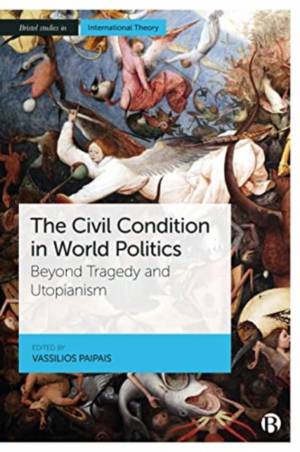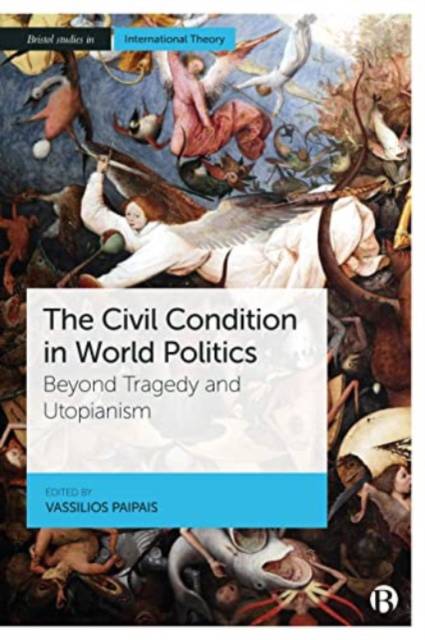
- Afhalen na 1 uur in een winkel met voorraad
- Gratis thuislevering in België vanaf € 30
- Ruim aanbod met 7 miljoen producten
- Afhalen na 1 uur in een winkel met voorraad
- Gratis thuislevering in België vanaf € 30
- Ruim aanbod met 7 miljoen producten
Zoeken
The Civil Condition in World Politics
Beyond Tragedy and Utopianism
€ 44,95
+ 89 punten
Omschrijving
Bringing together an international team of contributors, this volume draws on international political theory and intellectual history to rethink the problem of a pluralistic world order. Inspired by the work of international political theorist Nicholas Rengger, the book focuses on three main areas of Rengger's contribution to the political theory of international relations: his Augustine-inspired idea of an 'Anti-Pelagian Imagination'; his Oakeshottian argument for a pluralist 'conversation of mankind'; and his ruminations on war as the uncivil condition in world politics. Through a critical engagement with his work, the book illuminates the promises and limitations of civility as a sceptical, non-utopian, anti-perfectionist approach to theorizing world order that transcends both realist pessimism and liberal utopianism.
Specificaties
Betrokkenen
- Uitgeverij:
Inhoud
- Aantal bladzijden:
- 264
- Taal:
- Engels
- Reeks:
Eigenschappen
- Productcode (EAN):
- 9781529224184
- Verschijningsdatum:
- 1/10/2023
- Uitvoering:
- Paperback
- Formaat:
- Trade paperback (VS)
- Afmetingen:
- 156 mm x 234 mm
- Gewicht:
- 371 g

Alleen bij Standaard Boekhandel
+ 89 punten op je klantenkaart van Standaard Boekhandel
Beoordelingen
We publiceren alleen reviews die voldoen aan de voorwaarden voor reviews. Bekijk onze voorwaarden voor reviews.










